| |
6.9.2024
 
Two Enablers for Green Hydrogen Come from Jülich
Today, Forschungszentrum Jülich has inaugurated a state-of-the-art test facility for electrolyzers for the production of green hydrogen. The test facility is unique in that it will be used to explore real industrial stacks that are continuously monitored using advanced sensor technology.
The facility is part of the DERIEL project coordinated by Siemens Energy, which in turn is part of the German Federal Ministry of Education and Research’s (BMBF) H2Giga flagship project. It will play an important role in making electrolyzers “made in Germany” even more efficient and durable
|
|
|
12.7.2024
 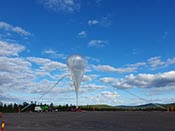
Stratospheric balloon travelling from Sweden to Canada
Researchers from Jülich and Karlsruhe in Germany launch newly developed measuring instruments to explore the upper layers of the atmosphere
|
|
|
12.7.2024
 .jpg)
New Material Paves the Way to On-Chip Energy Harvesting
New Material Paves the Way to On-Chip Energy Harvesting
Researchers from Germany, Italy, and the UK have achieved a major advance in the development of materials suitable for on-chip energy harvesting. By composing an alloy made of silicon, germanium and tin, they were able to create a thermoelectric material, promising to transform the waste heat of computer processors back into electricity
|
|
|
25.6.2024
 
The Sky over Los Angeles: Rising temperatures affect air quality
Particulate matter and ozone are a major problem for people and the environment. Dr. Eva Pfannerstill, young investigator group leader at Jülich’s Institute of Energy and Climate Research (IEK 8), is investigating where the volatile organic compounds (VOCs) responsible for particulate matter and ozone come from and what climate change has to do with it. In her paper, which was written at the University of California, Berkeley, and recently published in Science, she sheds light on the contribution of plant and human emissions to the air quality of Los Angeles.
|
|
|
28.3.2024
 
EPIQ: A Quantum Supercomputer Made in NRW
The Jülich Supercomputing Centre (JSC) at Forschungszentrum Jülich and the Siegen-based start-up eleQtron are together building a globally unique modular supercomputer consisting of a quantum module and a classical digital module. The project is called EPIQ and is based on a development partnership for a trapped-ion quantum computer in North Rhine-Westphalia (NRW). eleQtron is developing a trapped-ion quantum computer whose qubits perform calculations using a revolutionary microwave control system invented at the University of Siegen
|
|
|
24.3.2024
 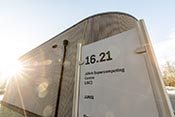
Expansion of Jülich’s Quantum Computer Infrastructure
The Jülich Supercomputing Centre (JSC) has acquired a 5-qubit quantum system from the German–Finnish manufacturer IQM Quantum Computers. The IQM Spark quantum computer is scheduled to go into operation in July 2024 as part of Jülich’s JUNIQ quantum computing infrastructure and will be connected to JSC’s classical supercomputers
|
|
|
11.3.2024
 
TrustLLM Project Started
The EU project TrustLLM was officially launched on 20-21 November. In the next three years, the project will create a new generation of large language models with improved accessibility, reliability, and mitigated negative effects such as hallucinations and bias. The consortium has a focus on northern Europe. For example, AI Sweden, located in Stockholm, is a project partner that has created the LLM GPT-SWE, the strongest model in the Swedish language to date
|
|
|
|
|
|
|
7.8.2023
 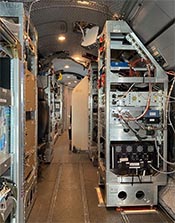
Up, up, and away with PHILEAS
The extreme precipitation that occurs during the Asiatic monsoon season repeatedly causes catastrophic devastation in Southeast Asia. The same weather systems which cause these extreme events also affect the altitude region of 12 to 20 kilometers. Strong convection transports partly heavily polluted air masses from the ground-level atmosphere in Southeast Asia into this altitude region, the so-called upper troposphere/lower stratosphere, and from the northern Pacific subsequently to Europe
|
|
|
Artificial Intelligence for All! - March 2023 |

The AI revolution
is largely taking place behind closed doors. This is something Jülich researchers want to change. Together with their partners in the LAION association, they have created the largest free text-image database for the training of open-source AI models.
|
|
|
CO2 Electrolysis as an Alternative to Coal - March 2023 |
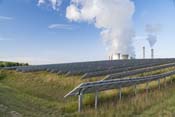
Coal in the Rhenish region is not only an important fuel for power generation. It is also used by the chemical industry to produce important basic chemicals
|
|
|
ERC Consolidator Grant for Dr. Ian Marius Peters - January 2023 |
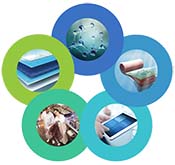
Physicist at HI ERN receives prestigious award and 2 million euros in funding to develop recycling concepts for solar modules - Across Europe, more than 2,200 researchers had applied in the current round of ERC calls.
|
|
|
One Million Galaxies Never Seen Before - February 2022 |
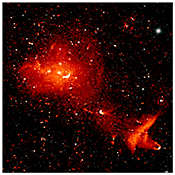
For seven years, an international research team has collected radio signals from space. The data have now been published as a new sky map, which provides a unique picture of the wonders of our universe. For the first time, 4.4 million galaxies were made visible in the radio wave range
|
|
|